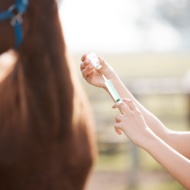IVFT unnecessary for feline blood donors, study finds
IVFT was found to have no significant impact on blood pressure.
A new study from the Royal Veterinary College has suggested that cats may not need to undergo intravenous fluid therapy (IVFT) after providing a blood donation.
The findings revealed that IVFT had no significant impact on the blood pressure of feline blood donors. This could mean they have a shorter time in hospital after donating.
Despite feline blood donations being a well-recognised veterinary practice, with several studies on feline blood products, there is limited research on feline blood donors.
As such, there is no veterinary consensus on the use of IVFT after blood donation.
The study saw researchers examine the condition of 100 client-owned cats after they had donated blood. The cats were randomly assigned to either receive IVFT or no fluid therapy.
Following the donation, each cat’s systolic blood pressure was measured. Owners were also contacted to record any changes in their cat’s condition.
Researchers analysed data from 97 of the cats – 46 of which underwent IVFT while 51 did not.
The results suggested that IVFT may be unnecessary for cats, with haemodynamic stability being maintained despite the lack of blood. The only other side effects recognised was minor bruising at the venepuncture site for those receiving the therapy, and mild lethargy in those that did not.
The discovery could mean that cats have less hospitalisation time after donating, potentially reducing their stress levels.
It could also reduce costs for donation programmes, such as kennelling requirements, consumables and personnel time.
Guedra Allais, lead author of the study, said: "Our study showed no significant difference in blood pressure at different time points in feline donors that received intravenous fluid compared to others that didn’t receive any fluid. This could lead to less hospitalisation time and therefore less stress for our feline blood donors.
“Other perfusion parameters such as capillary refill time, heart rate and pulse quality were not evaluated, and we recommend considering intravenous fluid in any feline donors if any major changes are detected on post donation physical examination.”
The full study can be found in the Journal of Small Animal Practice.
Image © Shutterstock



 Zoetis UK has apologised for a supply shortage of Equip Artervac, caused by a manufacturing issue.
Zoetis UK has apologised for a supply shortage of Equip Artervac, caused by a manufacturing issue.